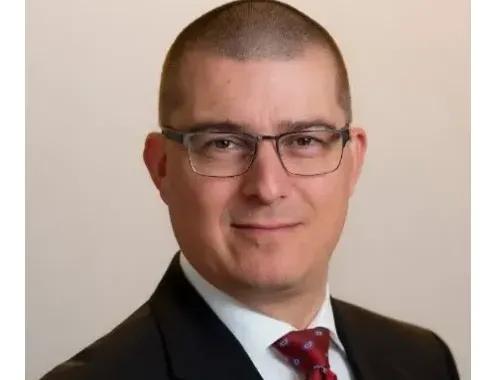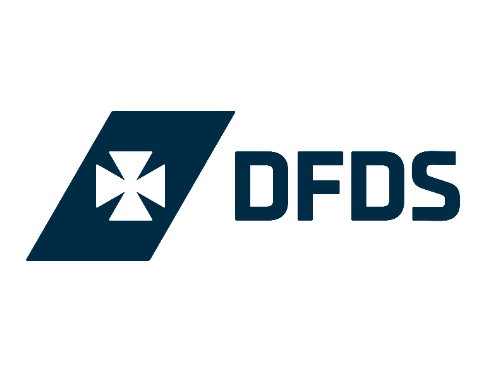Kenneth Eintoft - VP Group Finance at DFDS


Kenneth Eintoft is the VP Group Finance at DFDS with over 25 years of experience in global, capital-intensive industries. His international assignments have included roles based in Denmark, Panama, the USA and the Netherlands.
Kenneth specialises in financial reporting, M&A, and full funding strategies for large organisations, including financial process optimisation through technology and offshoring. He also contributes to the creation and application of IFRS accounting standards.
What risks have you taken throughout your twenty-five-year career and how did they help you reach the level you’re now at?
Throughout my career, I have taken calculated risks by ensuring that 75% of the new role was within my expertise while 25% was an area for growth, allowing me to continuously improve. I also transitioned from smaller to larger companies, with the exception of my current role at DFDS, which is smaller than my previous employer, Maersk.
I believe in taking risks that offer a reasonable chance of success and I’ve mentored others in my team to do the same, ensuring they have a solid foundation to build upon. While the '75/25' split mentioned might not be exact, there should be a balance between familiar skills and new challenges; it could be a 50/50 or 60/40 split.
I joined DFDS for the challenges it presented and to work with the hiring manager, the former CFO. The company was on a growth trajectory at the time and, coming from a huge international company, I saw both a challenge and an opportunity to help drive that growth. I found that interesting then and still do today.
I have also spent time in Panama as a regional CFO with APM Terminals, and that meant jumping in at the deep end. I remember driving to the hotel on arrival, reflecting on the fact that I didn’t know when I’d see home again. In the end, I was away for about a year in both Panama and Virginia and rose through several levels, accelerating both my career progression and personal growth. If you have a chance to do something like that, take it - even though the challenge may seem insurmountable.
Did your wife go with you?
Yes, my wife went with me. To top the story off, three weeks after the move, I was notified that the North and South America regions would merge, and I effectively didn't have a job. Our belongings that we’d shipped hadn’t even arrived at Panama City’s port yet. We discussed our options over the weekend, considering whether to return to Denmark or wait and see what opportunities might arise. We chose to sit tight and wait, which eventually led to my job in Virginia.
In many aspects of life, when you think about it, saying no is the easier option because it excuses you from the effort that comes with successful change. But the moral of the story is that you must take risks if you want to achieve something - and make sure you are aligned with your morals, work ethic and family.
If you could give your younger self some career advice, what would it be?
One thing that has always annoyed me is not finishing my master's degree. When you're young, it's easy to be swayed by others, and that can lead to you taking different roads in life. I would tell my younger self to concentrate on my strengths.
Although I didn't know then what I know now, I believe in being positive and not dwelling on regrets. I believe in the good in people and that I will prevail. Don’t spend too much time looking back. It's ok to reflect on past experiences but use them to move forward rather than regret them.
You witness that the most clearly when you change jobs: You take things with you from the old company to the new. What has also helped me is having great managers for most of my career. I have had poor managers too and, as my career hasn’t been one progressive incline. I’ve switched between managerial and specialist roles and realised that voicing your opinion is necessary to help your manager get better, otherwise, nothing will change.
What would have been your second career choice and why?
I considered engineering because I enjoy both maths and complex problems. I like the idea of working with big assets and solving technical challenges. Although it sounds unrelated to my current field, I used to work with engineers in a venture company and I found it interesting.
What is the most surprising thing that has happened during your career?
Other than moving to Central America and finding out I didn’t have a job...? Earlier in my career, I was focused on becoming a chartered accountant and it was a blow when that didn't happen. When I began to focus on what I was good at, things improved.
When I moved to The Hague as the Global Head of Finance for APMT, I knew I wanted broader responsibilities but didn't know exactly what that would entail. I have increasingly given up planning my career in great detail and become more opportunistic. That shift from having a set goal to playing it as it comes was surprising in a way and liberating in another.
What are the three challenges ahead for you as a VP of Group Finance?
The three main challenges I face this year include integrating two large company acquisitions, which we tend to do every year, implementing a new ERP system, and managing the complexities of ESG and CSRD compliance.
The ERP system implementation is ongoing and, despite completing the initial scope, the company's growth means we need to continue this work for more than two years. Additionally, we are introducing a new consolidation tool to streamline processes and make life easier for those in group functions and within the subsidiaries.
The ESG and CSRD compliance is challenging due to complexity; last year we had some assistance from an external consulting company. Since then, we have hired a great team of three to address these requirements. That was a super interesting process as I wrote the job specs myself and had the chance to interview people who I never thought I would, such as people with anthropology as part of their education.
How does your company work to retain high-potential employees?
We focus on two main strategies to retain high-potential employees. Firstly, hard work by managers to engage in open conversations with their staff, to understand their dreams and aspirations. I can’t read people’s minds and they can’t read mine, so the more we communicate, the better chance we have of offering the opportunities that align with their goals.
Secondly, we have two major drives: a clear environmental agenda - which motivates young people by showing our commitment to responsibility and problem-solving – and our growth story. DFDS has doubled in size over the last five years and this helps to attract candidates who want to be part of a successful, growing company.
What is your favourite motto or quote and why?
My favourite quote is from Tennyson's Ulysses: “To strive, to seek, to find, and not to yield.”
It resonates with me as I want to improve continuously. If you want someone to stand by an assembly line and grind away, don’t hire me. I like to change and prefer evolution to revolution. However, you do need a stable base while being persistent and adaptable, especially in challenging situations. Over time, I’ve come to realise that I am fairly good at meeting headwinds.
Thank you to Kenneth for speaking to our Michelle Ewing, Client Developement Director at EMEA Recruitment.
Views and opinions contained within our Executive Interviews are those of the interviewee and not views shared by EMEA Recruitment.






You can also use your social account to sign in. First you need to:
Accept Terms & Conditions And Privacy Policy